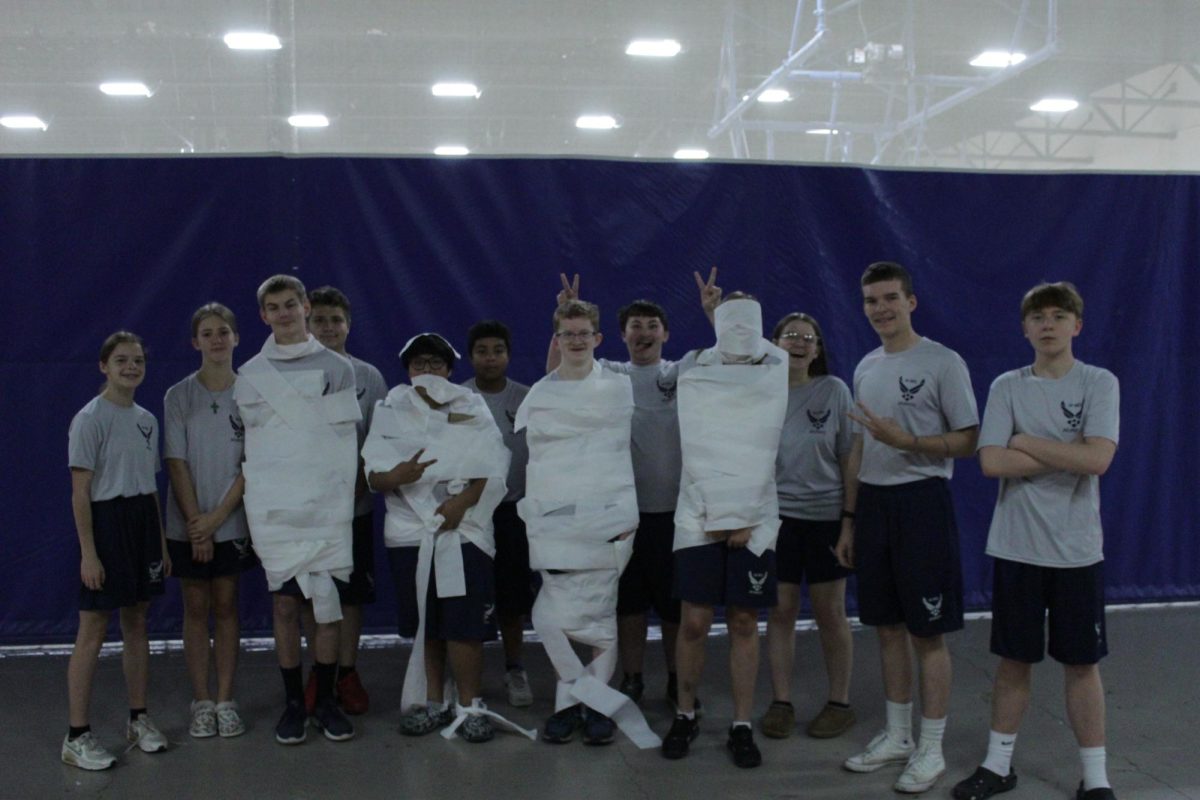Iowa state legislators signed a law banning phones in educational environments earlier this year in April, which has officially been in effect starting this new school year. This law was implemented to minimize distractions during teaching and promote newfound concentration on schoolwork. Many educators see this law as the pillar to a new future with fewer distractions, while most students see this as a barrier to their personal wants. Some teachers and students even think the opposite of one another, or they have a whole other perspective on the matter. The phone ban law is a debate that cannot be agreed on by the majority due to its diverse and ethical components.
Junior Zoe Vanscoy feels as if this ban is rather useless compared to the bigger issues in educational environments.
“I do see where they’re coming from, making this decision, right? Time after time, things have shown that social media is bad for people’s mental health in general. I’m not here to argue against the facts. However, I think this is more like putting a Band-Aid on a burn; it doesn’t really help in any major way,” said Vanscoy. “It feels like a nothing law to try and say they’re doing something to fix test scores when there are bigger issues at play beyond phones.”
Vanscoy wishes to see more action taken against other things and to better prioritize bigger issues in Iowa schools.
“I definitely think they should solve the problem of school shootings and the safety of students before worrying about attention,” said Vanscoy. “It’s the pyramid of needs.”
However, administrators such as Assistant Principal Jeff Novotny believe that this new law is strictly beneficial and will have no downsides in the future.
“Actually, the biggest benefit would be the students because there will be more focus and engaged learning,” said Novotny. “Without those distractions, students will be engaged and hopefully work with one another more often for student voice and learning to happen.”
Similar to Vanscoy, Junior Daniel Villalobos sees this ban as useless, but for other reasons that aren’t bigger issues in educational environments.
“My impression of the phone ban is that I don’t like it. Teachers say it’s distracting, but it can be really useful for emergencies and other things,” said Villalobos. “I don’t get the point of the ban when teachers were already taking phones before.”
Teacher Jana Georgius sees this as a positive law that only brings a few negatives into the educational environment.
“I think it is forcing students to look a teacher in the eye, a peer in the eye, learn social skills, learn listening skills, be able to be off the device, and practice that so they can gain skills for the work skills,” said Georgius. “Some negatives are just students being frustrated with being done with their class and being bored because they don’t have anything to do.”
Senior Zoie Moreland is not personally affected by the law, but sees the law as more disruptive than positive.
“It doesn’t affect me,” said Moreland. “But it affects a lot of other people.”
Because the phone ban places the responsibility for students’ phone usage on the teachers, Moreland sees it as ineffective and blames the kids.
“It’s the kids’ fault, like, no matter what the teachers say, kids will be on their phones,” said Moreland. “Kids are so integrated to their phones that it doesn’t matter what teachers say nowadays.”
With this new phone ban, both teachers and students have established their own pros and cons that don’t align with typical assumptions. Moreover, this topic can spark a debate with many different opinions to argue each side.










